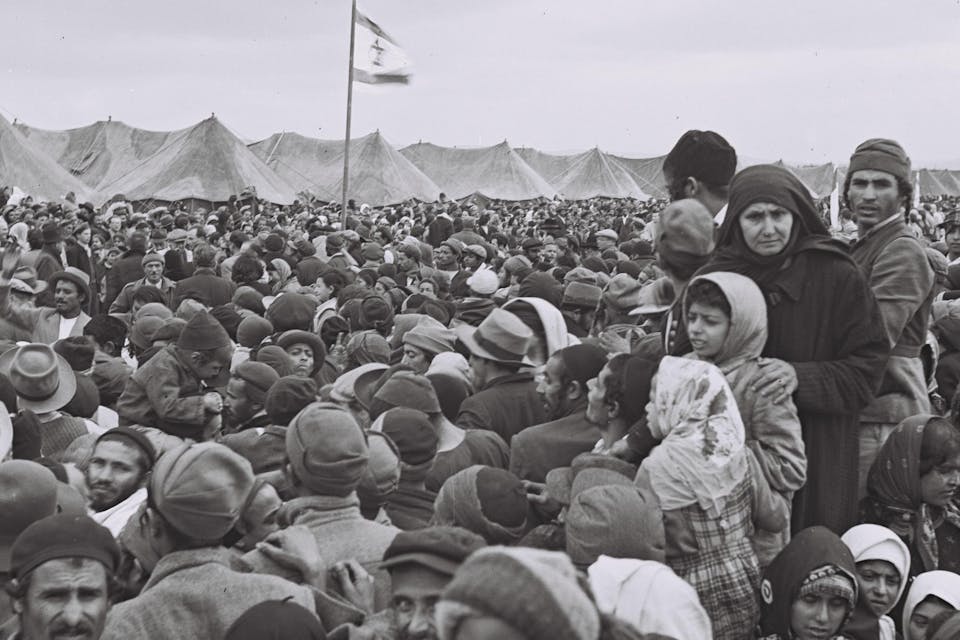
February 26, 2020
What the Mizrahim Lost, and What Fairness Demands Be Done About It
The majority of Israeli Jews, Lyn Julius points out in her book Uprooted, are not new to the Middle East—they were moved from one part of it to another.
Donald Trump’s “Deal of the Century”—the most recent American effort to advance a plan for peace between Israelis and Palestinians—was released last month. Among those potentially affected by the implementation of such a plan, one group in Israel had been watching with particular interest: Mizraḥi Jews whose families had lived continuously in Arab and Muslim lands from biblical times until the late 1940s when they became the targets of organized violence on the part of their own governments and in the ensuing years suffered wholesale expulsion from their homes.
These ancient communities, whose roots in the Middle East predated by a millennium the advent of Islam, numbered close to one million people. After 1948, they were cast out root and branch from Egypt, Iraq, Libya, Syria, Lebanon, Yemen, North Africa, and Iran. Most found refuge in the newly established Jewish state. There, the Knesset, initially slow to demand compensation for their losses, would eventually mandate that no settlement with the Palestinians would be acceptable if it failed to include recompense for individual and communal properties—estimated, in area, to amount to nearly 40,000 square miles, about five times the size of Israel, and valued at $150 billion—that had been confiscated by Muslim governments in the Middle East from their Jewish citizens.
The new American plan does indeed address the case of the Mizraḥi Jews. Noting that the Arab-Israel conflict “created both a Palestinian and Jewish refugee problem,” and that the numbers displaced were approximately equal on the two sides, the plan goes on to state unequivocally that, separate from any peace agreement, “a just, fair, and realistic solution” for the Jewish refugees, “including compensation for lost assets” as well as compensation to Israel for the cost of absorbing them, must be “implemented through an appropriate international mechanism.”